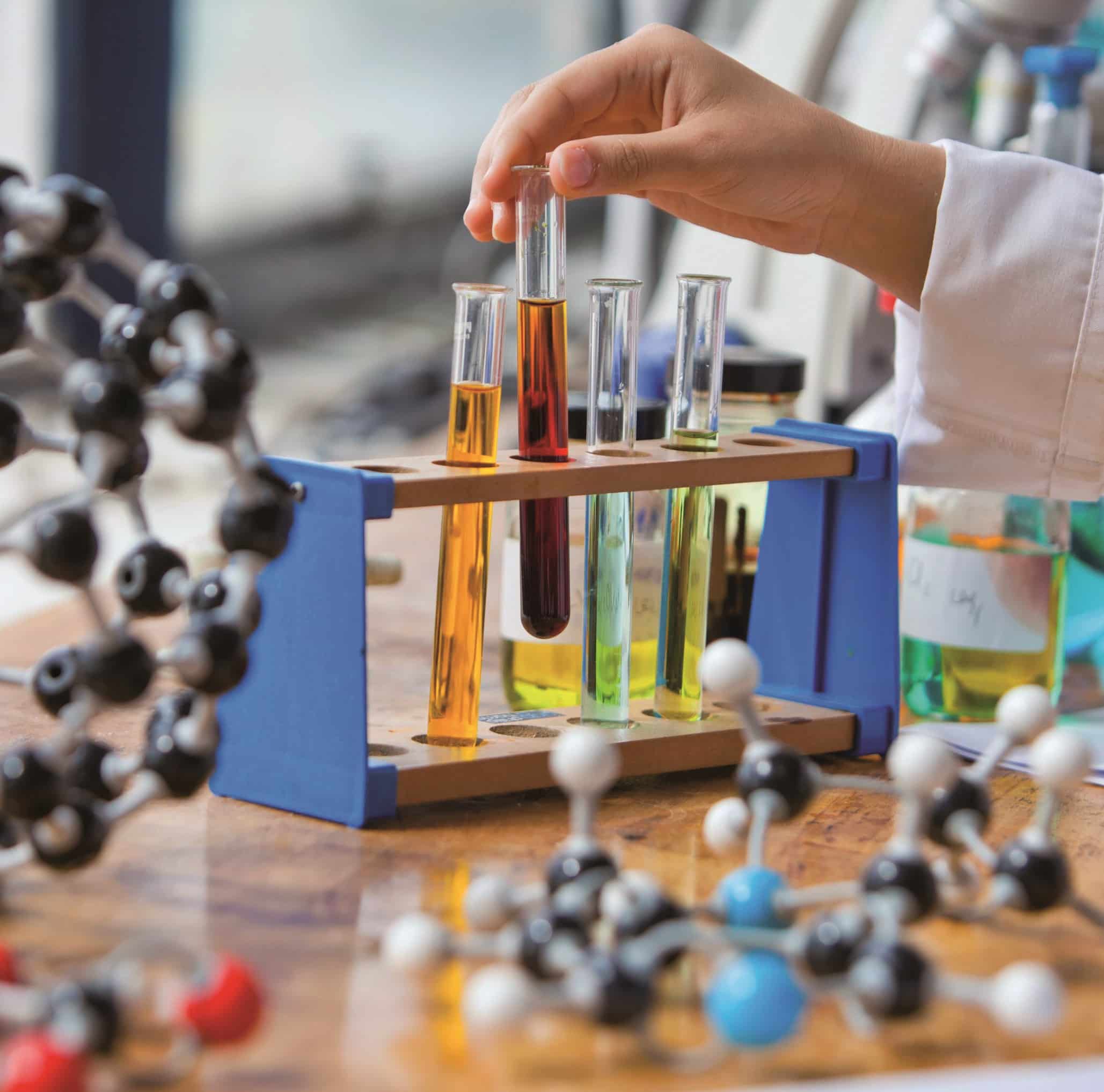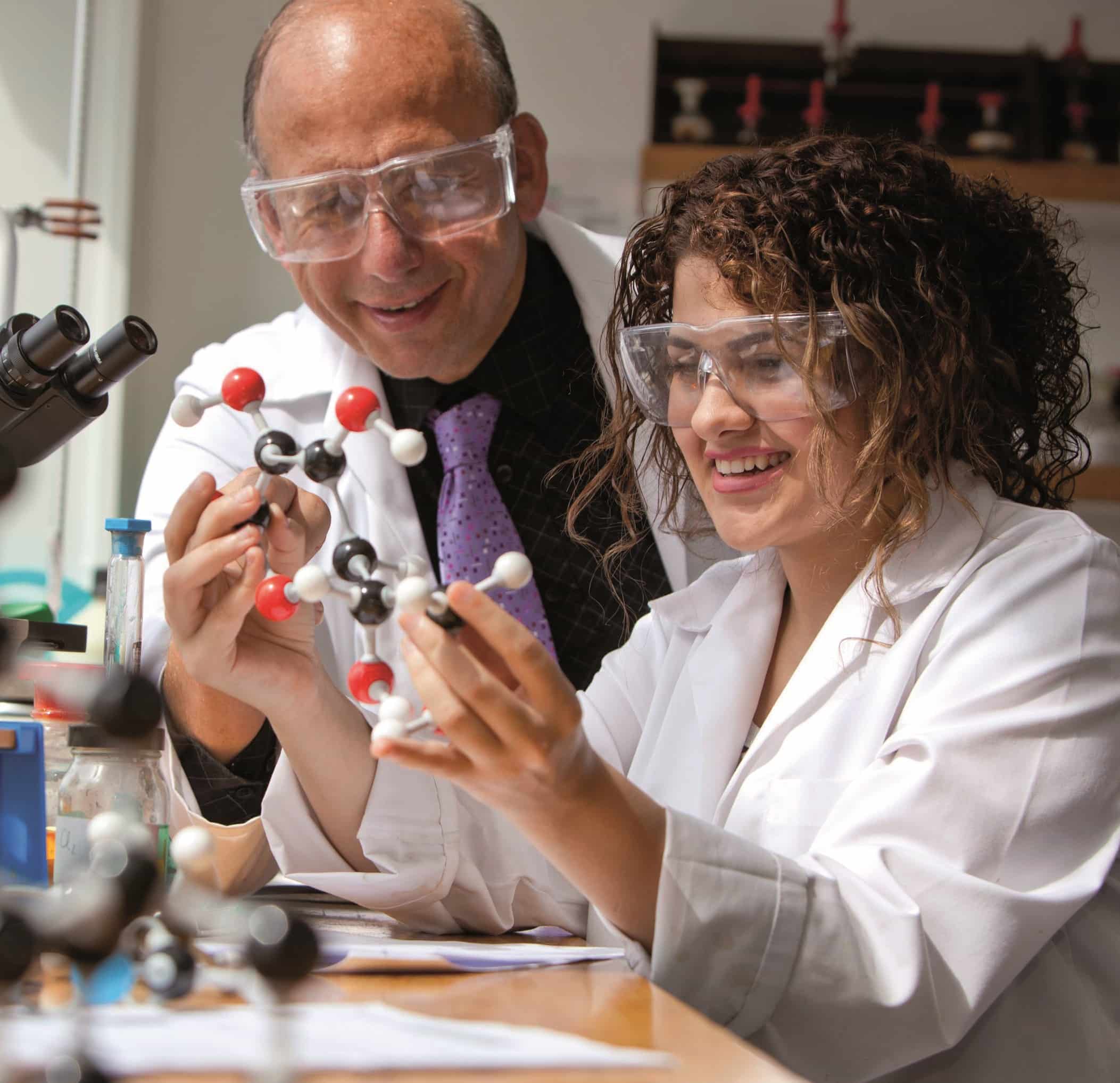A Level Biology
What board do we use?
Edexcel B (9B10)
What is Biology?
Biology is the study of living organisms and how they interact with each other and their environments. Biology is really a multidisciplinary subject that is made up of many different and interdependent fields. Biology explores how living systems are constructed, as well as how they develop, communicate, interact, reproduce, defend themselves, and shape the biophysical environment around them. Biologists are constantly looking to understand links between different disciplines of biology and in this sense evolution is a unifying concept in biology.
Biology at Advanced Level is made up of major core components such as cell biology, biochemistry, physiology, microbiology, genetics, ecology and evolution. At degree level, these macro-sub disciplinary areas are further divided into even more interesting topics, such as medical genetics, microbial genetics, molecular genetics and ecological genetics, which are just some branches of genetics.
All of this demonstrates that biology really is the science that is undergoing an incredible and exciting revolution in our understanding, one that started in the 20th Century with the elucidation of the structure of DNA, and now continues in the 21st century with the completion of the Human Genome Project, and the emergence of disciplines such as proteomics, genomics and synthetic biology. The subject of biology is never dull or static.
Students who study biology at A Level learn the fundamentals of the cell, biochemistry, ecology, physiology and other key elements of the subject so that they can go on to study subjects at degree levels such as agriculture, biochemistry, biomedical science, genetics, ecology, medicine, dentistry, neurology, physiology and zoology. Whatever you study, biology at Advanced level will be hard work, but always fascinating, engaging and relevant to you, and above all, this planet.
What subjects combine with Biology?
Chemistry, Physics, Mathematics and Psychology.
What opportunities can Biology lead to?
Careers in medicine and medically-related disciplines, such as pharmacy or pharmacology, medical genetics, virology, parasitology, immunology, and medical microbiology, all require knowledge of Biology. Biology is an important component of most psychology degrees, owing to cognitive and abnormal psychology components. Biology is also important if someone wants to become a forensic scientist, ecologist or biomedical technical scientist.
Furthermore, the subject is relevant for those who wish to study radiography or operate CT or fMRI scanners in a clinical setting. In short, the subject of biology is important as the basis for a wide range of biologically and medically-related careers and provides students with a balance of skill sets including, the scientific method, observation, data analysis and statistics, and understanding correlations and causal relationships.
Biology A Level Course Structure
AS Biology (Edexcel 8B10)
This is a stand-alone qualification that can be taken at the end of the first year of the 2-year A Level course. It covers topics 1-4, which are as follow:
Topic 1: Biological Molecules
Topic 2: Cells, Viruses, and Reproduction of Living Things
Topic 3: Classification and Biodiversity
Topic 4: Exchange and Transport
Students are expected to complete 9 core practical experiments for AS Biology.
A Level Biology (Edexcel 9B10)
This is a two-year course that contains 7 topics:
Topic 1: Biological Molecules
Topic 2: Cells, Viruses, and Reproduction of Living Things
Topic 3: Classification and Biodiversity
Topic 4: Exchange and Transport
Topic 5: Energy for Biological Processes
Topic 6: Microbiology and Pathogens
Topic 7: Modern Genetics
Students are expected to carry out 16 core practical experiments.
The specification consists of three externally examined papers and the Science Practical Endorsement.
Paper 1: Advanced Biochemistry, Microbiology and Genetics (30% of the total qualification)
Assessment is 1 hour 45 minutes
The paper will include multi-choice, short open, open-response, calculations and extended writing questions.
Paper 2: Advanced Physiology, Evolution and Ecology (30% of the total qualification)
Assessment is 1 hour 45 minutes
The paper will include multi-choice, short open, open-response, calculations and extended writing questions.
Paper 3: General and Practical Principles in Biology (40% of the total qualification)
Assessment is 2 hours 30 minutes
The paper will include multi-choice, short open, open-response, calculations and extended writing questions. It will also include synoptic questions.
Application process
Apply
Complete our Application form and Medical and SEN declaration form, and send it to us with a copy of your passport and certificates/transcripts of your academic results.
Interview
If you meet the entry requirements, we’ll invite you for an interview so we can learn more about you, your goals, and your potential, and you can meet us and learn more about studying at LILA* College.
Welcome to the family!
We’ll offer you a place or let you know why your application was unsuccessful within two working days. Once you’ve accepted the offer and paid your deposit, we’ll start the visa sponsorship process (if applicable) and get ready to welcome you!
Explore more A Levels available at LILA* College…
These are popular A Level subjects to combine with A Level Biology:

LILA* College marries the expertise of London’s David Game College in order to deliver an outstanding level of education for students enrolled on our A Level Programmes.










